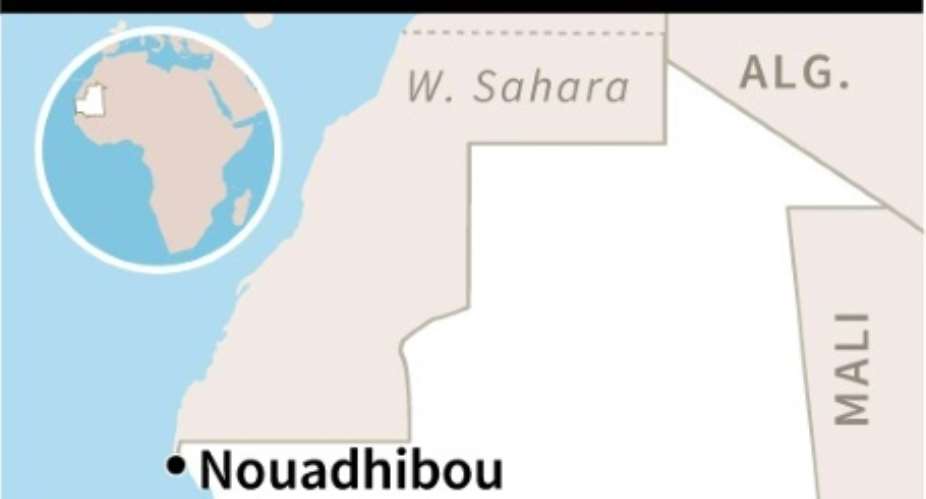Four jihadists have escaped from prison in Mauritania after a shootout left two national guards dead, the interior ministry said Monday, a rare event in a nation spared the insurgency sweeping through the Sahel.
The breakout in the capital on Sunday night left two other guards lightly wounded, it said.
"Four terrorists managed to escape from the central prison of Nouakchott after assaulting the guards, which led to an exchange of fire," the ministry said in a statement to the official news agency.
"The National Guard has tightened its control over the prison and immediately started tracking down the fugitives."
The identities of the escaped prisoners were not revealed.
According to a military official, two had been sentenced to death, while the other two were awaiting trial for membership of a terrorist organisation.
The same source said one of the prisoners was Saleck Ould Cheikh, who had been on death row since 2011 for his part in a plot to assassinate Mauritanian president Mohamed Ould Abdel Aziz.
Ould Cheikh had already escaped prison in December 2015 before being arrested in Guinea Bissau and sent back to Mauritania after three weeks on the run.
The second prisoner on death row participated in attacks on the army in the north of the country in 2005, the military official said.
Asking not to be named, he said their vehicle had been found in the northeastern part of Nouakchott.
The death penalty has not been enforced in Mauritania since 1987.
Attacks rare
By Monday morning, the roads around the prison had been cleared after being cordoned off the previous evening and calm had returned to the surrounding area, an AFP journalist noted.
With a population of 4.5 million, Mauritania has been spared jihadist attacks since 2011, despite sharing a border with Mali, from where an insurgency that began in 2012 has spread across the region.
The absence of attacks has fuelled suggestions a secret non-aggression pact exists between Nouakchott and the jihadists.
Washington claimed to have found documents in 2011 at the Pakistani hideout where former al-Qaeda leader Osama bin Laden was killed, listing an attempt at rapprochement between the group and the Mauritanian government in 2010.
The government refutes this.
Mauritania was regularly targeted in the 2000s, including attacks and kidnappings.
In 2008, the former head of presidential security, General Ould Abdel Aziz, took power and a year later was elected president.
Any qualms Western countries had about his rise were set aside.
Jihadist threat
Given the numbers of Mauritanians in emerging rebel groups in northern Mali, the sense was "the jihadist threat could spread to Mauritania", a French expert told AFP in 2020.
Abdel Aziz, who stepped down in 2019, is now on trial for abuse of office, influence peddling, money laundering and illicit enrichment.
Under his regime, France and the United States sent instructors to support anti-terrorist units and strengthen Mauritanian intelligence.
The Mauritanians invested in training and retaining recruits. Military spending increased, providing better equipment, pay and conditions for soldiers.
And the border has been tightly policed, whereas in other Sahel countries, porous borders are a notorious weak point.
Nouakchott also launched projects to deter vulnerable youngsters from joining the jihadists.
In 2010 a dialogue between leading Muslim scholars and 70 jailed jihadists led to around 50 repenting.
More than 500 imams were recruited and youngsters offered vocational training after leaving Islamic schools, giving them a chance to earn a living.
In an effort to spur economic activity, authorities also spearheaded the creation of new towns in the desert.





 Lay KPMG audit report on SML-GRA contract before Parliament – Isaac Adongo tells...
Lay KPMG audit report on SML-GRA contract before Parliament – Isaac Adongo tells...
 Supervisor remanded for stabbing businessman with broken bottle and screwdriver
Supervisor remanded for stabbing businessman with broken bottle and screwdriver
 NDC watching EC and NPP closely on Returning Officer recruitment — Omane Boamah
NDC watching EC and NPP closely on Returning Officer recruitment — Omane Boamah
 Your decision to contest for president again is pathetic – Annoh-Dompreh blasts ...
Your decision to contest for president again is pathetic – Annoh-Dompreh blasts ...
 Election 2024: Security agencies ready to keep peace and secure the country — IG...
Election 2024: Security agencies ready to keep peace and secure the country — IG...
 People no longer place value in public basic schools; new uniforms, painting wil...
People no longer place value in public basic schools; new uniforms, painting wil...
 'Comedian' Paul Adom Otchere needs help – Sulemana Braimah
'Comedian' Paul Adom Otchere needs help – Sulemana Braimah
 Ejisu by-election: Only 33% of voters can be swayed by inducement — Global InfoA...
Ejisu by-election: Only 33% of voters can be swayed by inducement — Global InfoA...
 Minority will expose the beneficial owners of SML, recover funds paid to company...
Minority will expose the beneficial owners of SML, recover funds paid to company...
 Prof. Opoku-Agyemang has ‘decapitated’ the NPP’s strategies; don’t take them ser...
Prof. Opoku-Agyemang has ‘decapitated’ the NPP’s strategies; don’t take them ser...
